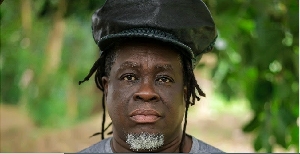A 21-member delegation from the Forestry Development Authority of Liberia are in the country to understudy the management of forest resources.
The team, which had already paid a courtesy call on the Chief Executive of the Forestry Commission, would learn at first hand Ghana’s management of forest resources under the Community Resources Management Area (CREMA) concept.
The CREMA mechanism is a variant of collaborative natural resources management system that devolves natural resources governance and management responsibility, as well as authority to the constituent communities that agree to contribute their land.
The communities also participate in shared decision-making with respect to resource use within the CREMA boundaries to obtain direct benefits.
Addressing the team, Mr John Allotey, the Deputy Chief Executive of the Forestry Commission, said public and civil society inclusion in the governance and management of resources was key, since they were the very persons and communities to rely upon to help conserve the resources.
He said the (CREMA) mechanism was designed based on extensive consultations with local communities, traditional authorities, other civil society groups and local government authorities and with our allies in the Southern and Eastern African Regions.
Its aim was to strengthen public participation in efforts to stem declining trends in wildlife and their habitats in particular, allow for the sustainable production of bush meat, generate other natural resource-based livelihoods options, provide greater food security and promote poverty reduction.
More recently, CREMAs had also been used as a tool in REDD+ strategies to forge a balance between natural resource conservation and sustainable livelihoods.
Mr Allotey said the CREMA programme had grown and Ghana currently has in excess of 40 CREMAs located within over 26 districts in thirteen administrative regions.
About 30 of the CREMAs had received their final certificate of devolution from the Minister of Lands and Natural Resources.
Brigadier-General Joseph Odei, Board Chairman, Forestry Commission, said the CREMA mechanism was an innovative natural resource governance and landscape level planning tool that authorises communities to manage their natural resources for economic and livelihood benefits.
The CREMA concept originally emerged as a mechanism for facilitating community-based wildlife management and habitat protection, but it is known to have transformed into a communally owned formidable structure and process for managing African natural resources for reducing emissions due to deforestation and forest degradation.
It is consistent with the ecological socio-cultural and economic factors that drive resource users’ decision-making processes and practices.
He expressed the hope that a very deep understanding and appreciation of the CREMA concept would help Liberia to take an informed decision on its adoption.
He said the Forestry Commission was always willing to collaborate with you in every area that would make it possible for Liberia to adopt the concept and reap its numerous benefits in the natural resource conservation efforts.
Mrs Comfort Tweh-Sakui, the Leader of the Liberian delegation, said the team was in Ghana to learn from the implementation of the CREMA to enable it to enhance governance structure at the community level.
The delegation was made up of representatives from government, civil society organisations and some community members.
General News of Tuesday, 20 August 2019
Source: ghananewsagency.org













